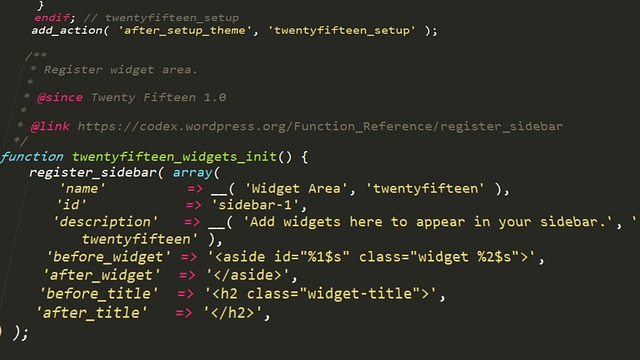When it comes to choosing the right ERP solution for a business, there are a lot of questions that need to be answered. What are the features and capabilities that are needed? How much customization is available? How quickly can it be implemented? Is it cost-effective? Do you need a brand-name solution or an off-the-shelf solution?
No matter how great of a solution an ERP package may be, if it is not easy to implement and sell, then the benefits it provides become negligible. The problem is that many businesses are investing in costly ERP solutions that they don’t understand and are not capable of using. Research by BARC has confirmed this, noting that “implementation problems and the lack of business-side involvement remain major roadblocks to success.” Without an appropriate implementation, the complexities of ERP are too great to overcome and the necessary features and benefits are never realized.
In this article, you will learn about the criteria to look for when choosing an ERP system that is easy to implement and sell. What technical and operational requirements should be a part of the decision-making process? What should be considered when determining the best way to deploy and manage an ERP solution? And what options are available for selecting an implementation partner?
We’ll also look at some of the key benefits of an easy-to-implement ERP system and how to maximize those benefits. What kind of cost savings can be expected? What is the impact on operational efficiency? How can customer service and satisfaction be improved? And what risks should be considered before making a decision?
Definitions of Easy-to-Implement and Sell ERP System
ERP, or Enterprise Resource Planning, is a software suite designed to enable businesses to manage and automate their operations. It can provide a comprehensive and integrated view of a company’s business processes, from supply chain to accounting. The right ERP solution can help businesses control costs, increase efficiency and accelerate growth.
The key to making an ERP system easy to implement and sell is selecting the right product. It is important to consider factors such as the business’s size, budget, and requirements. It should have the necessary features to meet the customer’s needs, without being overly complicated. Ideally, the solution should be cloud-based, so it can be easily accessed by multiple users from remote locations.
It is also important to consider the implementation process when selecting an ERP system. Some require complex set-up procedures, while others use simpler, user-friendly approaches. The cost of installation and training should also be considered. The vendor should provide comprehensive support for installation, training and ongoing maintenance.
The system should also be designed with scalability in mind, so it can adapt to the business’s changing needs. An ERP system that is too rigid and inflexible can cause problems down the line and can often be difficult to update or upgrade.
Finally, the system should be easy to sell. The vendor should have a well-developed sales strategy, and the product should be attractive and feature-rich, with pricing that is competitive. The vendor should also be willing to provide demonstrations and other types of support for potential customers, as well as providing customer references.
Choosing an Easy to Implement and Sell ERP System
What is an ERP System?
An enterprise resource planning (ERP) system is a suite of integrated software applications designed to manage the activities and resources of a business. It allows companies to manage their operations more effectively and efficiently. It can provide a real-time view of critical business processes, making it easier to identify and address inefficiencies. ERP systems are used by every type of organization — from small businesses to large, multi-national corporations.
Which ERP System is Easy to Implement and Sell?
When it comes to implementing an ERP system, there are a variety of factors to consider. It is important to find a system that is both cost-effective and user-friendly. The most effective systems are those that are easy to set up and have tools that allow companies to customize it to their specific needs. Here are some of the best ERP systems that are easy to implement and sell:
- NetSuite
- Oracle ERP Cloud
- SAP Business ByDesign
- Microsoft Dynamics 365
NetSuite is a comprehensive cloud-based ERP system that is designed to help companies manage their financials, inventory, and operations on a single platform. It is extremely user-friendly and allows companies to customize it to their business needs. Oracle ERP Cloud is a powerful cloud-based software solution that offers companies unprecedented visibility into their finances, inventory, and operations. It is designed to grow and scale with a company’s business needs.
SAP Business ByDesign is an enterprise-grade ERP system that is designed to help companies manage their operations, financials, and customer relationships. It is easy to set up and allows businesses to customize it to their unique needs. Finally, Microsoft Dynamics 365 is an integrated enterprise resource planning (ERP) system that helps businesses manage their financials, operations, and customer relationships. It is designed to be user-friendly and cost-effective.
The Benefits of an Easily Implementable ERP System
What is an Easily Implementable ERP System?
Enterprise resource planning (ERP) systems are complex software systems designed to help businesses manage their operations and enable effective decision-making. An ERP system typically integrates various functional areas within a business, such as finance, human resources, production, inventory, and sales. In order to become fully operational, the system must be implemented to the customer’s specific requirements. Implementation can be a complex, time-consuming, and expensive process. Therefore, it is important to select an ERP system that is easy to implement and sell.
Choosing the Right ERP System
When selecting an ERP system, it is important to consider how quickly it can be configured and setup. A system that has a long implementation timeline, or which requires significant customization, is unlikely to be suitable for many businesses. The system should also integrate easily with existing IT infrastructure, and it should provide comprehensive training and support for users. Furthermore, a system should be designed to enable workflows and processes to be automated wherever possible.
Price is also a factor when considering ERP systems. While the cost of the system will depend on the size of the business and the complexity of the implementation, some systems offer better value for money. An ERP system which offers a low upfront cost, as well as an easy-to-understand pricing model, can be a good solution for businesses looking to minimize the cost of their ERP system.
Finally, scalability is important. A system that is designed for small or medium-sized businesses should be able to scale up if needed, as the organization grows. This will ensure that the organization will not need to switch to a different ERP system in the near future.
In conclusion, selecting an ERP system that is easy to implement and sell can be a challenge. For businesses, it is important to consider factors such as cost, scalability, and implementation timeline, as well as how easily it can be integrated into existing IT infrastructure. By doing this, businesses can ensure that they select the right ERP system for their needs.
Locating and Purchasing an Easily Implementable ERP System
The Key Elements of an Easily Implementable ERP System
An ERP (Enterprise Resource Planning) system is a software solution that provides organizations with an integrated view of all their business operations, such as manufacturing, sales, inventory, accounting, and customer relations. It is important for businesses to have an ERP system that is easily implementable and cost-effective. An easily implementable ERP system should be user-friendly, reliable, flexible, and able to be installed quickly.
Discovering an Easily Implementable ERP System
The process of purchasing an ERP system can be a daunting task. Businesses must ensure that the system they choose meets their specific organizational needs, while also remaining within their budget. It is, therefore, important to thoroughly research the different ERP software packages available on the market. It is also important to read reviews and ask for references from other businesses who have recently purchased an ERP system.
When deciding on an ERP system to implement, businesses should consider the features the software package offers. The main purpose of an ERP system is to streamline workflow and make processes more efficient, so choosing a package that offers the most advanced features is essential. This includes features such as asset tracking, customer relationship management, forecasting and budgeting, and inventory management. Businesses should also consider the security measures available with each ERP software package they are considering.
Analyzing the Cost
When selecting an ERP system, businesses need to consider the costs of implementation, maintenance, and upgrades. Generally, an ERP system can be implemented for a one-time fee, but it can also involve a subscription fee or yearly subscription fees. Businesses should also consider the cost of training personnel on the new system, as well as any other costs associated with implementing the system.
Finally, when selecting an ERP system, it is important to look at the vendor’s support services. Businesses should pay close attention to how the vendor responds to customer questions or problems, how long it takes for the problem to be resolved, and if the vendor offers customer training sessions. This will ensure that any issues that arise are addressed quickly and that the ERP system is properly maintained.
In conclusion, businesses must carefully research and analyze the different ERP software packages available on the market before deciding on one. The most important factors to consider when selecting an ERP system include the features the software package offers, the security measures, the cost of implementation, maintenance, and upgrades, and the quality of the vendor’s support services. All of these factors can help businesses select an ERP system that is easily implementable and cost-effective.
Conclusion
As businesses are increasingly looking for efficient ways to boost their operations, they are turning to ERP systems that are easy to implement and cost-effective. But what ERP system genuinely fulfills these requirements? To answer the question of which ERP system is best for their business, it’s important for companies to research and study each system’s features, benefits, and drawbacks.
To help you decide which ERP system can provide your business the best value for money, follow our blog. We’ll be releasing comprehensive reviews and comparisons of various ERP systems so you can pick the one that best suits your needs. So stay tuned and keep an eye out for any new releases!
Q: What is the best ERP system for my business?
A: It depends on your business’s needs and objectives. By researching each ERP system’s features, benefits, and drawbacks, you can pick out the best fit for your company’s workflow.
Q: Does every ERP system have the same features?
A: No, ERP systems have different features that vary depending on the platform you choose. It’s important to research each system’s features carefully so that you are familiar with each platform’s capabilities and data flow.
Q: How much does an ERP system cost?
A: ERP system costs vary depending on the features you choose and a few years of subscription fees. When researching different ERP systems, factor in the implementation costs as well.
Q: Is there a free version of an ERP system?
A: Usually ERP systems only have a trial version, rather than a free version. It’s important to try out the trial version thoroughly so you can get a better understanding of each system’s features.
Q: What are the biggest benefits of using an ERP system?
A: ERP systems can provide companies with streamlined processes, higher productivity, and improved data accuracy. It also provides access to important data analysis and predictive insights, helping businesses to make informed decisions.



